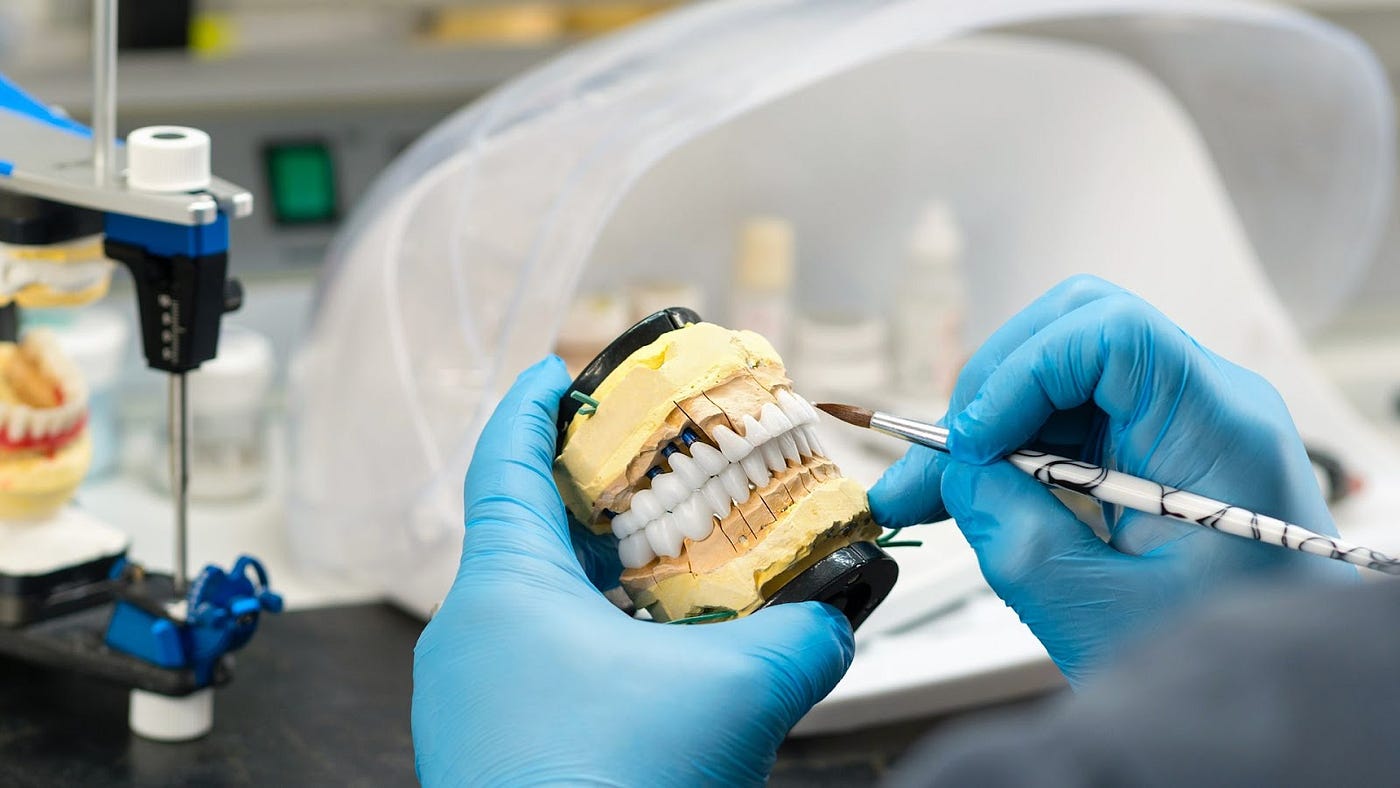Health
Barbiturates side effects

Barbiturates are a kind of depressant or sedative drug. They belong to an old class of drugs that relax the body and help people sleep. In the 19th century, these drugs were first developed, and in 1960 and 1970, the use of barbiturates as a drug for recreation became popular, causing drug abuse in many cases.
Use and abuse of barbiturates have significantly decreased but this decline is because of the rise of new and safe drug alternatives. Barbiturate consumption also carries the risk of psychological and physical addiction. The risk of overdose is higher with barbiturates as compared to other drugs.
Know more about barbiturates
Barbiturates are a drug group that helps calm the body. They produce effects similar to alcohol, from mild relaxation to inability to feel pain or consciousness. Barbiturates enhance the brain’s chemical activity, which assists in transmitting signals. This chemical is called gamma amino butyric acid.
Barbiturates as a medicine help in the reduction of muscle spasms, relief from anxiety, sleep induction, and prevention of seizures. Some of the effects produced by barbiturates are
- Relaxing effect and euphoria
- Decreased inhibition
- Unclear speech
- No coordination
- Confusion
How long it takes for barbiturates to work, how long do barbiturates stay in your system and how long their impacts last usually varies. They are classified as ultra-short, very short, intermediate, and long-acting. When people take barbiturates by mouth, its effects initiate within 30 minutes of swallowing it and lasts 4-16 hours.
Use of barbiturates
One of several medicinal uses of barbiturates is treating seizures. On some occasions, barbiturates are used by doctors for treatment such as
- Epilepsy
- Enhanced skull pressure
- Serious trauma in the skull
- Some kinds of convulsions
Barbiturates can also be used as an anesthetic. Some of the label uses of barbiturates include
- Migraines
- Alcohol and benzodiazepine and withdrawal
- Trauma
- Jaundice
But instead of all those uses, they are not very popular because they risk bad outcomes and side effects. Barbiturates are available in the form of pills, rectal, liquid and injectable forms.
Barbiturates side effects
When used as per the instructions, some of the common side effects produced by barbiturates are feeling drowsy, relaxing effects, and feeling sick. Some of the serious side effects are
- No coordination
- Headache
- Confusion
- Vomiting
- Respiratory arrest
- Facing issues in remembering things
One of the major problems is they can lead to tolerance and dependency. Tolerance is something when a good amount of drug is needed to obtain the required effect and dependence is something when symptoms of withdrawal happen when the person stops the use of the drug.
How long do barbiturates stay in your system?
The time taken by the body to process the barbiturates until they are excreted is different than the time taken for their effects to start weakening. You might still have the drug in the body even if you do not experience its side effects. Other than that several different factors affect how long barbiturates stay in your system:
- Mass of your body: Your body mass is determined by your height and weight. People with high body mass mostly take high doses, which take a long time to process. This results in lengthy detection times.
- Body metabolism: Irrespective of body mass, people also possess variable metabolism rates. People with slow body metabolism will hold barbiturates longer in their system than those with a high rate of metabolism.
- Other health issues: Kidney or liver issues, disorders of blood circulation, and other such health conditions that hinder drug processing can also affect the average timelines.
- Substances that contraindicate: Some drugs slow down or speed up the processing time of barbiturates. Instead, consuming some food before consuming that drug slows down the metabolic process.
- Number of times and the dosage amount: A high dose of barbiturates calls for a long processing time. Those exhibiting the signs of barbiturate abuse might have traces of this drug in their system for an extended period.
By staying aware of these factors, you can easily understand that your barbiturate detection time might not align with general timelines. But, when you fail to present differentiating factors, you can refer to the typical timing.
- In urine: The duration of time barbiturates stay in urine highly relies on the variant of medication that has been used. With short and long-acting barbiturates, the drug can stay up to 24-72 hours. For long-acting barbiturates, it can be detected in the urine until one week. To know how long the barbiturates are detectable in urine, you should know about the kind of drug you are using and go beyond the average timelines for every variant to prevent its detection.
- In blood: The drug is processed faster in the circulatory system than in the excretory system. Thus, barbiturates are detectable in your blood for an average of 72 hours.
- In saliva: Saliva tests are not common like urine analysis, but they can be given. On average, the barbiturates stay in saliva for 3-7 days, depending on the variant used.
- In hair: Some trace of barbiturates stays for a long time in the hair, for an average period of 3 months. If you take a drug test that needs the presentation of a hair sample, this might require you to go beyond the average timelines in a hair to avoid test detection.
Symptoms of withdrawal
When you suddenly stop the use of barbiturates, it can suddenly result in withdrawal symptoms such as
- Restlessness’
- Anxiety
- Insomnia
- Stomach cramping
- Nausea
- Vomiting
- Suicidal thoughts
- Hallucinations
Withdrawal symptoms of barbiturates can be fatal sometimes as some individuals who withdraw from barbiturates might get one or more seizures in addition to confusion and increasing body temperature. A lot of people might get delirium for many days. The confusion is the same as seen in alcohol withdrawal called delirium tremens. People withdrawing might experience anxiety, disorientation, and also visual hallucinations. If left untreated, this withdrawal can lead to high fever, heart issues, and sometimes death.
Conclusion
Barbiturates are prescribed medicines that have several relaxing effects on the human body, from mild sedation to even coma. These drugs are often associated with higher dependency rates and a small window between efficient and fatal doses.

Health
Unveiling the Benefits of Lemon Oil for Vitality

Lemon oil, derived from the zest of fresh lemons, has long been celebrated for its remarkable properties. Packed with vitamins, antioxidants, and a refreshing aroma, this essential oil has become a favorite in the realms of holistic health and wellness. In this article, we delve deep into the vitality-boosting powers of lemon oil, exploring its uses, benefits, and methods to incorporate it into daily life.
What Is Lemon Oil?
Lemon oil is an essential oil extracted from the peel of lemons through a process known as cold pressing. This potent elixir is rich in compounds such as limonene, citral, and beta-pinene, which contribute to its invigorating properties. These compounds not only provide a vibrant citrus scent but also offer a range of health benefits.
Key Components of Lemon Oil
Limonene
Limonene, a dominant compound in lemon oil, is known for its antioxidant and anti-inflammatory properties. It helps combat free radicals in the body, protecting cells from oxidative stress.
Citral
Citral offers antimicrobial benefits, making lemon oil a powerful agent against harmful bacteria and viruses. This component also contributes to the oil’s uplifting and energizing aroma.
Beta-Pinene
This compound is linked to improved cognitive function and enhanced mental clarity, making lemon oil an excellent choice for boosting focus and energy.
Benefits of Lemon Oil for Vitality
1. Enhances Energy and Mood
Lemon oil is renowned for its mood-enhancing properties. Its refreshing scent stimulates the brain’s limbic system, helping to reduce stress and promote feelings of happiness. Diffusing lemon oil in your home or workplace can help you feel more energetic and focused throughout the day.
2. Supports Immune Health
The high vitamin C content in lemon oil makes it a natural ally for the immune system. It helps the body fight off illnesses by enhancing white blood cell production, keeping you active and resilient.
3. Improves Digestion
Lemon oil aids in stimulating healthy digestion. A few drops of lemon oil in warm water can help alleviate indigestion, bloating, and nausea. Its detoxifying properties also promote a healthier gut environment.
4. Promotes Skin Health
Rich in antioxidants, lemon oil helps to fight signs of aging, reduce blemishes, and restore a youthful glow to the skin. Its antiseptic properties make it effective in treating acne and other skin conditions.
5. Boosts Cognitive Function
The uplifting aroma of lemon oil can sharpen focus and improve memory retention. Whether diffused during work or study sessions, it creates a productive atmosphere.
6. Detoxifies the Body
Lemon oil is a natural detoxifier that supports the liver in flushing out toxins. Adding it to your morning routine can set a vibrant tone for the day, leaving you feeling rejuvenated.
How to Use Lemon Oil for Vitality
Aromatherapy
Diffuse lemon oil in your home or workspace to enhance mood and energy levels. A few drops in a diffuser can create a refreshing and uplifting ambiance.
Topical Application
Mix lemon oil with a carrier oil, such as coconut or jojoba oil, and apply it to your skin. This can help with hydration and promote a glowing complexion.
Internal Use
For those using food-grade lemon oil, adding a drop to a glass of water can provide a refreshing and detoxifying drink. Always ensure the oil is safe for consumption.
Massage
Blend lemon oil into massage oils for an invigorating experience that soothes muscles while revitalizing the senses.
Household Cleaner
Harness the antimicrobial properties of lemon oil to create a natural and effective cleaner for your home. Its fresh scent leaves your space feeling clean and vibrant.
Safety Tips When Using Lemon Oil
While lemon oil offers numerous benefits, it’s essential to use it responsibly:
- Always dilute with a carrier oil before applying to the skin.
- Avoid direct sun exposure after topical application, as it can cause photosensitivity.
- Consult with a healthcare professional before internal use, especially for pregnant or nursing individuals.
Incorporating Lemon Oil Into Your Daily Routine
Making lemon oil a part of your daily routine can transform your overall well-being. Start your morning by diffusing its uplifting aroma, add a drop to your water for a refreshing boost, or incorporate it into your skincare regimen for radiant skin. The possibilities are endless, and the benefits are undeniable.
Conclusion
Lemon oil is more than just an essential oil; it’s a powerhouse of vitality, energy, and wellness. From boosting your mood to enhancing your immune system, its multifaceted benefits make it a must-have in your holistic health toolkit.
Frequently Asked Questions about Lemon Oil
1. Is lemon oil safe for daily use?
Yes, lemon oil is safe for daily use when properly diluted. Avoid excessive exposure to sunlight after topical application, as it may increase sensitivity.
2. Can lemon oil replace caffeine for energy?
While lemon oil can’t replicate caffeine’s effects, its invigorating properties make it a natural and healthy alternative for boosting energy.
3. How do I store lemon oil?
Store lemon oil in a cool, dark place to preserve its potency. Ensure the lid is tightly closed to prevent oxidation.
Health
Ultimate Guide to Perfect Banana Nut Muffins

Banana nut muffins are a timeless classic, beloved for their moist texture, nutty flavor, and versatility as a quick breakfast or satisfying snack. In this comprehensive guide, we will take you through every step to craft the best banana nut muffins that will leave your taste buds craving more. Whether you are a novice baker or an experienced one, this recipe and tips will elevate your baking game.
The Secret to Moist and Flavorful Banana Nut Muffins
Banana nut muffins achieve their signature flavor and texture through a combination of ripe bananas, quality nuts, and a well-balanced batter. Let’s break it down step by step:
Choosing the Right Bananas
To create the most flavorful muffins, it is essential to use bananas that are fully ripe, with a deep yellow peel covered in brown spots. These bananas are naturally sweeter and easier to mash, ensuring a consistent flavor throughout the batter.
Selecting the Best Nuts
The nuts you choose significantly impact the texture and taste of your muffins. Walnuts are the most popular choice for their buttery flavor and crunch. However, pecans, almonds, or even macadamia nuts can be great alternatives. Ensure the nuts are fresh and chopped to your preferred size—small pieces for subtle crunch or larger chunks for pronounced nutty bites.
Step-by-Step Recipe for Banana Nut Muffins
Ingredients
Here is a list of ingredients you’ll need to bake 12 delicious muffins:
- 3 ripe bananas, mashed
- 2 large eggs, room temperature
- ½ cup (120ml) vegetable oil or melted butter
- ½ cup (100g) granulated sugar
- ¼ cup (50g) brown sugar, packed
- 1 teaspoon pure vanilla extract
- 1½ cups (190g) all-purpose flour
- 1 teaspoon baking soda
- ½ teaspoon baking powder
- ½ teaspoon salt
- 1 teaspoon ground cinnamon (optional)
- 1 cup (100g) chopped nuts
Instructions
- Preheat the Oven: Preheat your oven to 350°F (175°C). Line a 12-cup muffin tin with paper liners or lightly grease with nonstick spray.
- Prepare the Wet Ingredients: In a large mixing bowl, combine the mashed bananas, eggs, vegetable oil, granulated sugar, brown sugar, and vanilla extract. Whisk until smooth and well blended.
- Mix the Dry Ingredients: In a separate bowl, sift together the flour, baking soda, baking powder, salt, and cinnamon. Stir to combine evenly.
- Combine Wet and Dry Ingredients: Gradually fold the dry ingredients into the wet mixture using a spatula. Be careful not to overmix; a few lumps are fine.
- Incorporate the Nuts: Gently fold in the chopped nuts, ensuring even distribution.
- Fill the Muffin Cups: Using a spoon or ice cream scoop, divide the batter evenly among the prepared muffin cups, filling each about ¾ full.
- Bake: Place the muffin tin in the preheated oven and bake for 18-22 minutes, or until a toothpick inserted into the center of a muffin comes out clean.
- Cool and Serve: Allow the muffins to cool in the tin for 5 minutes before transferring them to a wire rack to cool completely. Serve warm or at room temperature.
Tips for Baking Success
Achieving Perfect Texture
- Don’t Overmix: Overmixing the batter can lead to dense muffins. Mix just until the dry ingredients are incorporated.
- Proper Measurements: Use a kitchen scale for precise measurements, especially for flour, as too much can make the muffins dry.
Enhance Flavor
- Add Spices: Enhance the flavor with a pinch of nutmeg or a dash of cardamom.
- Incorporate Add-Ins: Consider adding chocolate chips, dried fruits, or shredded coconut for a twist.
Storage Tips
- Room Temperature: Store muffins in an airtight container at room temperature for up to 3 days.
- Freezing: Wrap muffins individually in plastic wrap and store them in a freezer-safe bag for up to 3 months. Thaw at room temperature or reheat in the oven.
Nutritional Benefits of Banana Nut Muffins
Banana nut muffins are not only delicious but also provide nutritional benefits:
- Bananas: Rich in potassium, vitamins, and natural sugars for energy.
- Nuts: A good source of healthy fats, protein, and fiber.
- Eggs: Packed with high-quality protein and essential nutrients
- Conclusion
- Banana nut muffins are a delightful combination of flavor, nutrition, and convenience. Whether you’re baking for a family breakfast or preparing snacks for the week, these muffins offer a versatile and satisfying solution. Experiment with variations and pairings to make them uniquely yours.
FAQs About Banana Nut Muffins
Can I Make These Muffins Gluten-Free?
Yes! Substitute the all-purpose flour with a gluten-free flour blend designed for baking. Ensure all other ingredients, such as baking powder, are certified gluten-free.
What Other Sweeteners Can I Use?
Instead of granulated and brown sugar, you can use honey, maple syrup, or coconut sugar. Adjust the liquid ingredients slightly if using liquid sweeteners.
Can I Make Mini Muffins?
Absolutely! Divide the batter into a mini muffin tin and reduce the baking time to 10-12 minutes.
Health
Beat Winter Dehydration: A Comprehensive Guide

When winter arrives, many of us focus on staying warm and cozy. However, one of the most overlooked aspects of winter health is staying properly hydrated. Dehydration doesn’t just occur in hot, sunny weather; the cold season can be just as taxing on our body’s water balance. In this article, we provide essential tips and strategies to help you combat winter dehydration effectively.
Why is Dehydration Common in Winter?
Cold weather creates a unique set of conditions that can lead to dehydration. The following factors make hydration a challenge in winter:
- Dry Air: Indoor heating systems and cold outdoor air lack humidity, leading to increased water loss through the skin.
- Reduced Thirst Mechanism: People feel less thirsty in colder temperatures, resulting in lower water consumption.
- Increased Respiratory Water Loss: Breathing in cold air increases the amount of water vapor exhaled.
Understanding these causes is the first step in preventing winter dehydration.
Signs and Symptoms of Winter Dehydration
Recognizing dehydration in its early stages can help prevent more severe complications. Be on the lookout for the following symptoms:
- Dry or chapped skin
- Fatigue and lack of energy
- Headaches
- Dark-colored urine
- Muscle cramps
- Dizziness or confusion
If you notice any of these signs, it’s time to boost your hydration efforts.
Effective Strategies to Stay Hydrated During Winter
1. Drink Plenty of Water Throughout the Day
The simplest and most effective way to prevent dehydration is to drink water consistently. Even if you don’t feel thirsty, make it a habit to sip water regularly. Aim for at least 8-10 glasses per day, adjusting based on your activity level and body size.
2. Include Hydrating Foods in Your Diet
Foods with high water content can significantly contribute to your hydration levels. Include these options in your daily meals:
- Fruits: Oranges, strawberries, and watermelons
- Vegetables: Cucumbers, celery, and spinach
- Soups and Broths: A warm bowl of soup is both comforting and hydrating
3. Limit Caffeine and Alcohol Intake
Both caffeine and alcohol act as diuretics, causing increased water loss. While a hot cup of coffee or a glass of wine may be tempting during the cold months, moderation is key to maintaining optimal hydration.
4. Use a Humidifier Indoors
Indoor heating systems can make the air extremely dry, exacerbating water loss from the skin. Using a humidifier helps add moisture to the air, reducing the risk of dehydration and keeping your skin hydrated.
5. Opt for Warm, Hydrating Beverages
If cold water feels unappealing in winter, opt for warm alternatives such as:
- Herbal teas
- Warm lemon water
- Decaffeinated hot drinks
These options not only hydrate but also help you stay warm and cozy.
6. Moisturize Your Skin Regularly
Hydration isn’t just about drinking water. Protecting your skin’s moisture barrier is equally important. Use a high-quality moisturizer to prevent dryness and water loss through the skin.
7. Monitor Your Activity Levels
Even in winter, physical activity can lead to sweat loss. If you engage in winter sports or exercise, ensure you replenish lost fluids promptly. Carry a reusable water bottle to stay hydrated during activities.
8. Eat Balanced Meals
A balanced diet rich in nutrients supports overall hydration. Include electrolytes like sodium, potassium, and magnesium in your diet through foods like bananas, avocados, and nuts.
Special Tips for Children and Elderly Individuals
Both children and older adults are at a higher risk of dehydration. For children, make hydration fun by offering water in colorful bottles or adding natural fruit flavors. For seniors, schedule regular water breaks throughout the day and encourage consumption of hydrating foods.
The Role of Hydration in Immune Health
Winter is synonymous with colds and flu, making immune health a top priority. Staying hydrated supports immune function by helping your body eliminate toxins and maintain optimal circulation of nutrients. Proper hydration also ensures your respiratory system stays moist, reducing susceptibility to infections.
Conclusion: Stay Ahead of Winter Dehydration
Beating winter dehydration is not just about drinking water; it’s a holistic approach that includes dietary changes, lifestyle adjustments, and awareness of your body’s needs. By following the strategies outlined in this guide, you can stay hydrated and healthy throughout the colder months.
FAQs About Winter Hydration
1. Can drinking too much water be harmful?
Yes, excessive water intake can lead to water intoxication or hyponatremia, where sodium levels in the blood drop dangerously low.
2. Are warm drinks as hydrating as cold ones?
Absolutely. Warm drinks like herbal teas hydrate effectively and provide comfort during winter.
3. How can I tell if I’m dehydrated?
Look for signs like dry skin, dark urine, and low energy levels.
4. Is it okay to rely on soups for hydration?
Yes, soups are an excellent hydration source, especially when prepared with nutrient-rich broths.
5. Should I drink water before going outside in the cold?
Yes, pre-hydrating helps maintain fluid levels during outdoor activities.
6. Can children drink electrolyte beverages?
Yes, but opt for low-sugar options and ensure theyd in moderation.
Health
Discover the Diverse World of Olive Varieties

Olives have been a staple of Mediterranean culture for centuries, cherished for their robust flavors, health benefits, and versatility. Whether you’re savoring a tangy tapenade, drizzling extra virgin olive oil over fresh salads, or simply enjoying olives as a snack, understanding the varieties of this ancient fruit can elevate your culinary experience. In this article, we delve deep into the most popular olive varieties, their characteristics, and how they are used across the globe.
What Are Olives and Their Importance?
Olives are small fruits harvested from the olive tree (Olea europaea), native to the Mediterranean basin. These fruits are integral to Mediterranean diets and are celebrated for their monounsaturated fats, antioxidants, and vitamins. Olives come in a spectrum of flavors, sizes, and textures, influenced by the region of cultivation, harvesting methods, and curing techniques.
The Key Olive Varieties and Their Characteristics
1. Kalamata Olives
Known for their dark purple hue and almond-like shape, Kalamata olives originate from Greece. They boast a rich, fruity flavor with a hint of wine-like sweetness. Kalamata olives are typically cured in brine or vinegar, enhancing their depth of taste.
Uses:
- Perfect in Greek salads
- An essential ingredient in Mediterranean recipes
- Ideal for spreads like tapenade
2. Manzanilla Olives
The Manzanilla olive, hailing from Spain, is often referred to as the “queen of table olives.” These medium-sized, green olives have a firm texture and a slightly nutty taste. They are frequently stuffed with ingredients such as pimientos, garlic, or almonds.
Uses:
- Excellent as appetizers
- Commonly found in martinis
- A key component in Spanish tapas
3. Castelvetrano Olives
This Italian variety is renowned for its vibrant green color and mild, buttery flavor. Castelvetrano olives are less salty and less bitter than other varieties, making them a favorite among those new to olives.
Uses:
- Served as a snack or appetizer
- Paired with cheese and charcuterie
- Used in pasta dishes for a subtle olive taste
4. Arbequina Olives
Originating from Catalonia, Spain, Arbequina olives are small and brownish-green in color. Their fruity, slightly nutty flavor makes them a popular choice for producing high-quality olive oil.
Uses:
- Ideal for producing aromatic olive oil
- Used in dressings and marinades
- Perfect for light, flavorful snacks
5. Picholine Olives
A staple of French cuisine, Picholine olives are small, elongated, and green. They have a firm texture and a slightly tart, nutty flavor, often enhanced by brine curing.
Uses:
- Featured in cocktails, especially martinis
- A favorite addition to cheese boards
- Used in traditional Provençal dishes
6. Niçoise Olives
From the Provence region of France, Niçoise olives are small, dark, and wrinkled. They have a strong, tangy flavor that is both salty and earthy. These olives are often cured with herbs and spices, embodying the essence of French cuisine.
Uses:
- Essential in Niçoise salads
- Used in sauces and tapenades
- A delightful pairing with roasted vegetables
7. Ligurian Olives
Ligurian olives, also known as Taggiasca olives, are native to the Liguria region of Italy. They are small, dark, and have a sweet, fruity taste with a slightly bitter undertone.
Uses:
- Common in Italian pasta dishes
- Ideal for pizza toppings
- Used in high-quality olive oils
8. Gaeta Olives
Gaeta olives, originating from Italy, are small, wrinkled, and purplish-black. They have a rich, tangy flavor, often enhanced by a dry salt cure.
Uses:
- A perfect addition to antipasto platters
- Paired with seafood dishes
- Used in savory Italian recipes
The Olive Curing Process: Enhancing Flavor and Texture
Raw olives are naturally bitter and inedible. The curing process is essential to make them palatable. Various methods, including brine curing, dry curing, and lye curing, influence the final taste and texture of olives.
- Brine Curing: Olives are soaked in a saltwater solution, giving them a salty, tangy flavor.
- Dry Curing: Olives are packed in salt, which intensifies their flavor and creates a wrinkled texture.
- Lye Curing: A faster method that uses lye to remove bitterness, often used for larger production.
Health Benefits of Olives
Olives are more than just delicious—they are packed with nutrients that contribute to overall health. Here are some notable benefits:
- Rich in Antioxidants: Olives contain compounds like hydroxytyrosol and oleuropein, which combat oxidative stress.
- Heart Health: The monounsaturated fats in olives help reduce bad cholesterol levels.
- Anti-Inflammatory Properties: Their high concentration of polyphenols aids in reducing inflammation.
- Supports Bone Health: Olives are rich in calcium and other minerals essential for strong bones.
How to Choose the Best Olive Variety for Your Needs
When selecting olives, consider their flavor profile and intended use:
- For snacking, opt for Castelvetrano or Kalamata olives.
- To complement cocktails, go for Manzanilla or Picholine olives.
- For cooking, Arbequina or Ligurian olives are excellent choices due to their mild flavors.
Storing and Preserving Olives
Proper storage is key to maintaining the quality of olives:
- Keep unopened jars in a cool, dark place.
- Once opened, refrigerate and ensure they are submerged in brine or oil to retain freshness.
- Consume within three weeks of opening for the best flavor and texture
- Conclusion
- The world of olive varieties is as diverse as it is flavorful. From their ancient roots to their modern culinary applications, olives remain a timeless staple. Whether you prefer them green or black, mild or tangy, there’s an olive variety for everyone. Celebrate this extraordinary fruit and its role in history, health, and cuisine.
- FAQs About Olive Varieties
- What is the healthiest type of olive?
Extra virgin olive varieties, like Kalamata and Arbequina, are nutrient-rich and packed with antioxidants. - Why are some olives green and others black?
The color difference is due to ripeness—green olives are unripe, while black olives are fully ripened. - What is the best olive for olive oil production?
Arbequina and Picual olives are renowned for producing premium olive oil. - Are olives a good source of protein?
Olives are low in protein but rich in healthy fats and antioxidants. - What makes Castelvetrano olives unique?
Their sweet, mild flavor and bright green color distinguish them from other varieties. - How long do cured olives last?
Properly stored, they can last up to a year in the refrigerator.
Health
The Ultimate Guide to Herbal Oils: Benefits, Uses, and Types

Herbal oils have been cherished for centuries for their therapeutic properties, versatility, and natural goodness. These oils are derived from plants through processes like cold pressing or distillation, and they play an integral role in health, beauty, and wellness routines worldwide. Below, we dive deep into the world of herbal oils, exploring their benefits, types, and innovative uses.
What Are Herbal Oils?
Herbal oils are extracts obtained from plants, combining the natural oil of the plant with essential nutrients, antioxidants, and aromatic compounds. These oils are often infused with the essence of herbs such as lavender, rosemary, chamomile, and peppermint. Herbal oils can be categorized into two types: essential oils and carrier oils.
- Essential Oils: Highly concentrated extracts used for aromatherapy, skincare, and holistic treatments.
- Carrier Oils: Base oils like almond, jojoba, or coconut oil used to dilute essential oils and provide additional benefits.
The Health Benefits of Herbal Oils
1. Supports Skin Health
Herbal oils are loaded with vitamins, antioxidants, and anti-inflammatory compounds that nourish and rejuvenate the skin. For example:
- Lavender oil promotes healing and soothes irritation.
- Tea tree oil combats acne and bacterial infections.
- Argan oil deeply hydrates and improves skin elasticity.
2. Enhances Hair Growth and Scalp Care
Many herbal oils stimulate blood circulation and strengthen hair follicles, addressing issues like dandruff, split ends, and dryness. Popular oils for hair care include:
- Rosemary oil for stimulating hair growth.
- Peppermint oil for soothing itchy scalps.
- Coconut oil for preventing protein loss in hair strands.
3. Provides Stress Relief and Mental Clarity
Aromatherapy with essential oils is known for its profound effects on mental health:
- Chamomile oil reduces anxiety and promotes relaxation.
- Lemon oil uplifts mood and boosts focus.
- Eucalyptus oil clears the mind and aids breathing.
4. Strengthens the Immune System
Herbal oils such as oregano and eucalyptus possess antimicrobial properties that help combat infections and boost overall immunity.
5. Offers Pain Relief
Many herbal oils are effective in alleviating muscle aches and joint pain due to their anti-inflammatory properties. For instance:
- Ginger oil soothes arthritis pain.
- Clove oil reduces dental pain.
- Wintergreen oil acts as a natural analgesic.
Popular Types of Herbal Oils
1. Lavender Oil
Known for its calming aroma and skin-healing properties, lavender oil is a staple in aromatherapy and skincare routines.
2. Tea Tree Oil
A powerhouse of antibacterial and antifungal benefits, tea tree oil is ideal for addressing skin issues and sanitizing spaces.
3. Rosemary Oil
Loved for its stimulating and invigorating properties, rosemary oil enhances memory, scalp health, and muscle recovery.
4. Jojoba Oil
Jojoba oil mimics the skin’s natural sebum, making it an excellent moisturizer and base oil for diluting essential oils.
5. Peppermint Oil
Its refreshing scent and cooling properties make peppermint oil a go-to choice for pain relief and sinus congestion.
How to Use Herbal Oils Effectively
1. Aromatherapy
Add a few drops of essential oils to a diffuser to create a relaxing ambiance. This method is perfect for stress relief and mood enhancement.
2. Topical Application
Dilute essential oils with a carrier oil and apply them to the skin for targeted benefits such as pain relief or hydration.
3. Massage Therapy
Herbal oils enhance the effectiveness of massages, improving blood flow and muscle relaxation.
4. Hair Treatments
Mix a few drops of essential oil into your shampoo or conditioner to address specific hair concerns like dandruff or thinning.
5. DIY Beauty Products
Incorporate herbal oils into homemade skincare products like lotions, lip balms, and face masks for natural nourishment.
Tips for Choosing High-Quality Herbal Oils
- Look for Organic Labels: Ensure the oil is free from pesticides and synthetic additives.
- Check for Purity: Pure essential oils should not contain fillers or carrier oils unless stated.
- Opt for Reputable Brands: Research reviews and certifications to ensure the oil’s authenticity.
- Inspect Packaging: High-quality oils are usually stored in dark glass bottles to protect them from sunlight and maintain their potency.
Precautions and Safety Tips
While herbal oils are generally safe, it is crucial to follow certain precautions:
- Always perform a patch test before using a new oil on your skin.
- Never ingest essential oils without consulting a healthcare professional.
- Avoid applying undiluted essential oils directly to the skin.
- Keep herbal oils out of reach of children and pets.
Conclusion
Herbal oils are a testament to nature’s healing power, bridging ancient wisdom with modern applications. From improving health to enhancing beauty and daily living, these oils are invaluable allies in fostering a natural, balanced lifestyle.
FAQs About Herbal Oils
- What are herbal oils used for?
Herbal oils are versatile, used in aromatherapy, skincare, haircare, and natural remedies. - Are herbal oils safe for everyone?
Most are safe with proper dilution, but pregnant women and individuals with allergies should consult a doctor first. - How do I store herbal oils?
Store them in a cool, dark place in tightly sealed containers. - Can herbal oils replace medication?
They complement treatments but shouldn’t replace prescribed medications without medical advice. - What is the shelf life of herbal oils?
Most oils last 1–3 years when stored correctly. - How do I use herbal oils in diffusers?
Add 5–10 drops to a diffuser filled with water to disperse the aroma throughout a room.
Health
Avocado Ice Cream: A Creamy Delight Packed with Nutrition

Avocado ice cream is not just a dessert; it’s a rich, creamy, and nutritious indulgence that has taken the culinary world by storm. This unique treat combines the buttery goodness of avocados with the refreshing coolness of ice cream, creating a dessert that’s both luxurious and health-conscious. Whether you’re a foodie exploring unique flavors or a health enthusiast looking for a guilt-free dessert, avocado ice cream is a perfect choice. In this article, we’ll explore everything you need to know about avocado ice cream, from its health benefits to how you can make it at home.
What is Avocado Ice Cream?
Avocado ice cream is a frozen dessert made primarily with ripe avocados, cream, sugar, and other flavor-enhancing ingredients. Unlike traditional ice cream, this creamy delight leverages the natural richness of avocados to create a texture that’s smooth and velvety. It’s a popular choice in tropical countries and among those seeking healthier dessert alternatives.
Why Choose Avocado Ice Cream?
Rich in Nutrients
Avocado ice cream isn’t just delicious; it’s a nutritional powerhouse. Avocados are packed with healthy monounsaturated fats, which are heart-healthy and promote good cholesterol levels. They’re also a great source of vitamins C, E, K, and B-6, as well as potassium and magnesium.
Dairy-Free Options Available
For those who are lactose-intolerant or vegan, avocado ice cream can be made dairy-free by substituting coconut milk or almond milk for traditional cream. The result is a dessert that’s just as creamy but caters to dietary restrictions.
Natural Sweetness
The mild, nutty flavor of avocados pairs beautifully with natural sweeteners like honey or agave syrup, allowing for reduced sugar content without compromising on taste.
Low in Calories
Compared to traditional ice creams laden with heavy cream and sugar, avocado ice cream can be a lower-calorie alternative, making it a great option for weight-conscious individuals.
How to Make Avocado Ice Cream at Home
Creating your own avocado ice cream is surprisingly simple. Here’s a detailed step-by-step guide:
Ingredients
- 2 ripe avocados
- 1 cup heavy cream (or coconut cream for a vegan option)
- 1 cup whole milk (or almond milk)
- ¾ cup granulated sugar or natural sweetener
- 1 teaspoon vanilla extract
- A pinch of salt
- Optional: Lime juice or zest for a zesty twist
Instructions
- Prepare the Avocados
Cut the avocados in half, remove the pits, and scoop out the flesh. Mash the avocado or blend it in a food processor until smooth. - Mix the Base
In a large bowl, whisk together the cream, milk, sugar, and vanilla extract until the sugar dissolves completely. - Combine Ingredients
Add the mashed avocado to the mixture and blend until the consistency is smooth and creamy. Add a pinch of salt to enhance the flavors. - Chill the Mixture
Refrigerate the mixture for at least 2 hours to ensure it’s well-chilled before churning. - Churn the Ice Cream
Pour the chilled mixture into an ice cream maker and churn according to the manufacturer’s instructions. - Freeze and Serve
Transfer the churned ice cream to an airtight container and freeze for 4–6 hours. Serve scoops of this creamy treat and enjoy!
Creative Variations of Avocado Ice Cream
Chocolate Avocado Ice Cream
For chocolate lovers, adding cocoa powder and dark chocolate chips to the base creates a rich and indulgent twist.
Coconut-Lime Avocado Ice Cream
Combine coconut milk with lime zest and juice for a tropical flavor profile that’s both refreshing and creamy.
Matcha Avocado Ice Cream
Blend in a teaspoon of matcha powder for a unique Japanese-inspired treat with a hint of earthy sweetness.
Berry-Infused Avocado Ice Cream
Swirl in pureed strawberries, blueberries, or raspberries to add a fruity kick and vibrant color.
Where to Buy Avocado Ice Cream
For those who prefer store-bought options, several brands now offer avocado-based ice creams. Popular choices include:
- Cado Ice Cream: A pioneer in avocado ice cream, offering flavors like Deep Dark Chocolate and Mint Chocolate Chip.
- Häagen-Dazs Non-Dairy Avocado Lime Sorbet: A dairy-free option that highlights the refreshing side of avocados.
Look for these in health food stores or online marketplaces to explore the growing world of avocado ice cream.
Health Benefits of Avocado Ice Cream
Boosts Heart Health
Avocados are rich in monounsaturated fats, which are known to reduce bad cholesterol and improve cardiovascular health.
Supports Skin and Hair
The high levels of vitamin E and antioxidants in avocados contribute to healthy skin and hair, making avocado ice cream a beauty-boosting treat.
Rich in Fiber
A serving of avocado ice cream contains dietary fiber, which aids digestion and promotes gut health.
Frequently Asked Questions (FAQs)
1. Does Avocado Ice Cream Taste Like Avocado?
While it has a subtle avocado flavor, the addition of sugar, vanilla, and other ingredients masks the strong taste, making it more like a creamy, nutty dessert.
2. Is Avocado Ice Cream Suitable for Diabetics?
Yes, by using natural sweeteners like stevia or monk fruit, avocado ice cream can be made diabetic-friendly.
3. How Long Can I Store Avocado Ice Cream?
When stored in an airtight container in the freezer, avocado ice cream can last up to two weeks without losing its creamy texture.
Health
Unveiling the Incredible Benefits of Pomegranates

Pomegranates, known as the “jewel of winter,” are a superfruit with a history steeped in both tradition and health benefits. Packed with essential nutrients, antioxidants, and unique compounds, pomegranates are more than just a delicious treat—they’re a powerhouse of wellness. In this article, we delve into the benefits of pomegranates, from their nutritional profile to their remarkable effects on overall health.
Nutritional Profile of Pomegranates
Pomegranates are rich in a variety of nutrients essential for a healthy lifestyle. One cup of pomegranate arils (174 grams) contains:
- Calories: 144
- Protein: 3 grams
- Fiber: 7 grams
- Vitamin C: 30% of the Recommended Daily Intake (RDI)
- Vitamin K: 36% of the RDI
- Folate: 16% of the RDI
- Potassium: 12% of the RDI
This impressive nutrient profile makes pomegranates an excellent choice for a balanced diet. Their low-calorie content and high fiber levels support weight management, while vitamins and minerals contribute to immune health and overall vitality.
Rich in Antioxidants: Protect Your Cells
Pomegranates are loaded with antioxidants, including polyphenols, tannins, and anthocyanins. These compounds combat oxidative stress by neutralizing harmful free radicals in the body. Oxidative stress is a major contributor to chronic diseases such as cancer, diabetes, and heart disease. By incorporating pomegranates into your diet, you can enhance your body’s ability to defend itself against cellular damage.
Punicalagins: A Unique Compound in Pomegranates
Punicalagins, potent antioxidants found in pomegranate juice and peel, are known for their anti-inflammatory and heart-protective properties. Studies show that pomegranate juice has three times the antioxidant activity of red wine and green tea, underscoring its exceptional health benefits.
Boosting Heart Health
Pomegranates play a significant role in supporting cardiovascular health. Their high levels of antioxidants, potassium, and polyphenols work together to promote heart wellness.
Lowering Blood Pressure
Pomegranate juice has been shown to help lower systolic and diastolic blood pressure. The antioxidants in pomegranates relax blood vessels, improving blood flow and reducing strain on the heart.
Cholesterol Management
Research suggests that pomegranates can reduce bad cholesterol (LDL) levels while enhancing good cholesterol (HDL). This balance is crucial for maintaining healthy arteries and preventing atherosclerosis, a leading cause of heart attacks and strokes.
Anti-Inflammatory Properties
Chronic inflammation is at the root of many diseases, including arthritis, Alzheimer’s disease, and certain cancers. Pomegranates have powerful anti-inflammatory effects due to their high concentration of antioxidants.
Reducing Arthritis Symptoms
Pomegranate extract has been found to inhibit enzymes that cause joint damage in people with osteoarthritis. Regular consumption may also help alleviate symptoms of rheumatoid arthritis by reducing joint pain and stiffness.
Supporting Digestive Health
Pomegranates are a rich source of dietary fiber, which is essential for a healthy digestive system. Fiber aids in regular bowel movements, prevents constipation, and supports a balanced gut microbiome.
Gut-Friendly Properties
The ellagitannins in pomegranates are converted by gut bacteria into urolithins, compounds known for their anti-inflammatory properties. These compounds promote gut health and may lower the risk of digestive disorders.
Enhancing Skin Health
The nutrients and antioxidants in pomegranates make them a natural choice for glowing skin. Vitamin C in pomegranates supports collagen production, improving skin elasticity and reducing signs of aging.
Combatting Skin Damage
Antioxidants protect the skin from UV damage, pollution, and other environmental stressors. Pomegranate seed oil is also a popular ingredient in skincare products for its hydrating and rejuvenating properties.
Cancer Prevention Potential
The powerful antioxidants in pomegranates have shown promise in preventing and slowing the growth of certain cancers. Research indicates that pomegranate extract can inhibit the proliferation of cancer cells, particularly in breast and prostate cancers.
Reducing Tumor Growth
Studies on animals and humans have demonstrated that pomegranates may reduce tumor size and spread by interfering with cancer cell signaling pathways. While more research is needed, these findings highlight the potential of pomegranates in cancer prevention strategies.
Improving Exercise Performance
Athletes and fitness enthusiasts can benefit from the natural nitrates in pomegranates, which improve blood flow and oxygen delivery to muscles. This can enhance endurance, reduce fatigue, and speed up recovery.
Reducing Muscle Soreness
Pomegranate juice has been shown to decrease muscle soreness after intense workouts, making it a popular choice for post-exercise recovery.
How to Incorporate Pomegranates Into Your Diet
Pomegranates are versatile and can be enjoyed in various ways:
- Fresh Arils: Sprinkle them on salads, yogurt, or oatmeal for a burst of flavor.
- Juice: Opt for 100% pure pomegranate juice without added sugars for maximum health benefits.
- Smoothies: Blend them with other fruits and vegetables for a nutrient-packed drink.
- Sauces and Marinades: Use pomegranate molasses to add a tangy flavor to your dishes.
Conclusion
Pomegranates are a treasure trove of health benefits, from boosting heart health and reducing inflammation to enhancing skin vitality and potentially preventing cancer. Their rich nutrient profile and powerful antioxidants make them a must-have in any balanced diet.
Benefits for Skin and Hair
Anti-Aging Properties
The antioxidants in pomegranates combat signs of aging by reducing wrinkles and improving skin elasticity. Punicic acid, a unique compound found in pomegranate seed oil, promotes skin regeneration and hydration, leaving the skin looking youthful and radiant.
Promotes Hair Growth
Pomegranates are a natural remedy for hair loss. Their nutrient-rich profile stimulates hair follicles and improves scalp health, promoting thicker and stronger hair.
Skin Hydration and Repair
Pomegranates help maintain skin moisture, making them an excellent choice for combating dry skin. The fruit’s anti-inflammatory properties soothe irritated skin, accelerating wound healing and repair.
Pomegranates and Mental Health
Enhances Cognitive Function
Rich in polyphenols, pomegranates have been shown to improve memory and protect against neurodegenerative conditions like Alzheimer’s disease. Regular consumption enhances focus and mental clarity.
Reduces Stress and Anxiety
Pomegranates help reduce cortisol levels, the primary stress hormone. This calming effect can improve overall mood and emotional resilience.
Role in Weight Management
Low-Calorie Snack Option
With their low-calorie count and high water content, pomegranates are a great option for those looking to manage their weight. They satisfy sweet cravings without contributing to excess caloric intake.
Supports Fat Metabolism
The polyphenols in pomegranates are believed to enhance fat metabolism, helping the body utilize energy more efficiently and promoting healthy weight loss.
Impact on Reproductive Health
Boosts Fertility
In traditional medicine, pomegranates are renowned for enhancing fertility in both men and women. They improve blood flow to reproductive organs and balance hormones.
Improves Sexual Health
The antioxidants in pomegranates increase nitric oxide levels, improving circulation and potentially enhancing libido and sexual function.
Uses in Traditional Medicine
Pomegranate in Ayurveda
Ayurvedic medicine views pomegranates as a symbol of vitality and a remedy for a variety of ailments, including digestive disorders, inflammation, and skin conditions.
Role in Chinese Medicine
In traditional Chinese medicine, pomegranates are valued for their ability to cool the body and nourish the blood, contributing to overall health and balance.
Culinary Uses of Pomegranates
Juices and Smoothies
Pomegranate juice is a refreshing drink loaded with nutrients. It can be consumed alone or blended into smoothies for a flavorful health boost.
Salads and Garnishes
The seeds, or arils, of pomegranates add a delightful crunch and a burst of flavor to salads. They pair exceptionally well with greens, nuts, and cheeses.
Desserts and Syrups
Pomegranate syrup, often used in Middle Eastern cuisine, is a versatile ingredient for desserts, glazes, and marinades.
Frequently Asked Questions (FAQs)
- What are the main health benefits of pomegranates?
Pomegranates improve heart health, boost immunity, support digestion, and provide anti-aging benefits. - Can pomegranates help with weight loss?
Yes, they are low in calories and high in fiber, making them an excellent addition to a weight-loss diet. - Are there any side effects of eating pomegranates?
Overconsumption may lead to digestive issues, and some individuals might experience allergies or drug interactions. - How can I use pomegranates in my diet?
Pomegranates can be eaten raw, juiced, or used as an ingredient in salads, desserts, and beverages. - Are pomegranate seeds edible?
Yes, the seeds (arils) are entirely edible and packed with nutrients. - Where are pomegranates grown?
Major producers include India, Iran, the United States, and Spain.
Health
What Sets Apart Medical Marijuana from Street Marijuana in Louisiana?

While medical marijuana and street marijuana may sound the same, there are actually a lot of differences that set them apart. One such difference is the legal regulation that allows patients to get approved in minutes at TeleLeaf for a medical marijuana card.
From legal regulations to quality control measures, different factors contribute to determining medical marijuana from its street counterpart. Discover what sets these two forms apart and how they impact patients in Louisiana.
Differences in Legal Status
Medical marijuana is legal in Louisiana for patients with qualifying conditions. To access medical marijuana, these patients must obtain a recommendation from a licensed physician. This process ensures that the use of marijuana for medical purposes is regulated and safe for those who truly need it.
On the flip side, street marijuana doesn’t have any of the legal protections or quality controls that medical marijuana has. Street marijuana lacks such legal backing and oversight. It is illegal for adult use and distribution outside of the state’s medical marijuana program. Possession and sale of street marijuana can also result in legal consequences.
Medical Marijuana Comes from a Licensed Dispensary/Pharmacy
Medical marijuana comes from licensed dispensaries, which are regulated by the state. Patients must first consult with a certified physician who can recommend medical cannabis based on specific qualifying conditions. After receiving a recommendation, patients are issued a medical marijuana card, granting them the legal right to purchase their medication from licensed dispensaries.
These dispensaries are closely monitored by state authorities to make sure they follow strict safety and quality standards. This also guarantees that the product undergoes standard procedures as set by the state’s guidelines.
Street Marijuana Comes from Unverified Sources
Conversely, street marijuana has an unknown origin or comes from an unverified source. Buyers have no guarantees regarding the quality or safety of the product they’re getting. Often, street marijuana can be laced with harmful substances or contain contaminants that pose serious health risks. There’s no guarantee about how it was grown, processed, or stored.
Patients using medical marijuana can trust that their medication adheres to health standards —a level of assurance absent when purchasing from unlicensed sellers.
Medical Marijuana Offers Legitimate Products
Medical marijuana comes in flower, edibles, oils, concentrates, and more. Each product comes with a label showing the potency (amount of THC and CBD) and the cannabinoid profile (the specific mix of cannabinoids present).
The entire production and distribution process of medical marijuana is also closely monitored. This includes tracking from seed to sale and implementing strong security measures to prevent diversion or tampering
This process is not just about keeping the product safe. This also guarantees consistency in THC and CBD levels. This ensures patients receive the right dosage they need for their qualifying condition. It’s a level of precision street marijuana can’t match.
Street Marijuana Has Limited or Even Unverified Products
Street marijuana comes with significant dangers. It is typically just a flower of unknown potency and cannabinoid profile. Without testing, users have no way of knowing if their purchase contains harmful substances. Pesticides, heavy metals, or other contaminants can pose serious health risks.
The unpredictability of THC levels in street marijuana is a health hazard. High THC levels can lead to adverse effects, especially for new users or those with certain health conditions.
Medical marijuana offers a safer alternative, with controlled dosages tailored to the patient’s needs.
Medical Use vs. Adult Use
Medical marijuana is intended for therapeutic use with a doctor’s supervision. Doctors can recommend medical marijuana for different qualifying conditions such as:
- Anxiety
- Insomnia
- Chronic pain
- Epilepsy
- Panic Disorder
- And more!
Its primary goal is therapeutic, aiming to improve patients’ quality of life and manage symptoms.
Conclusion: Making Informed Choices
Understanding the basic differences between medical and street marijuana is critical. Medical marijuana offers a legal, regulated way to access this option under a doctor’s guidance.
Street marijuana, on the other hand, is illegal and carries significant risks due to its unregulated nature.
By choosing the legal and regulated path of medical marijuana, you can make informed decisions about your health and explore the therapeutic benefits it has to offer.
Health
Protect Your Smile: Essential Dental Care

Key Takeaways:
- Understanding the importance of regular dental checkups for overall health.
- Effective daily oral hygiene practices to prevent dental issues.
- Exploring the impact of dietary choices on dental health.
- Recognizing common dental problems and how to avoid them.
The Importance of Regular Dental Checkups
Frequent dental examinations are essential for preserving oral health and averting complicated problems. Dentists recommend biannual visits to detect cavities, gum disease, and other conditions early, allowing for more effective treatments. The Mayo Clinic emphasizes the importance of these examinations in preserving oral health and preventing severe conditions. Ortho preventative approach addresses minor dental issues before they become significant issues. Regular checkups also involve professional cleanings to remove stubborn plaque and tartar buildup, reducing tooth decay and gum disease risk.
Daily Oral Hygiene Practices
Maintaining good oral hygiene practices is crucial for a healthy smile. Regular brushing and flossing, fluoride toothpaste, and replacing toothbrushes every three months are essential. The CDC provides helpful tips and guidelines for incorporating these practices into daily routines.
Correct Brushing and Flossing Techniques
To optimize brushing, use a soft-bristled toothbrush at a 45-degree angle and gently cover all tooth surfaces. This effectively removes plaque and prevents gum irritation. Using 18 inches of floss can help lower your risk of gum disease and cavities by removing food particles and plaque below your gum line.
The Impact of Diet on Dental Health
Dental health is significantly influenced by diet. A diet high in critical nutrients, such as fruits, vegetables, dairy products, and lean proteins, strengthens teeth and gums. Consuming sugary snacks promotes tooth decay. Proper hydration helps wash away food particles and supports saliva production, neutralizing acids and preventing cavities.
Foods That Promote Oral Health
Eat nutrient-rich foods like cheese, almonds, and leafy greens to promote strong, healthy teeth. These foods help remineralize tooth enamel and clean teeth by increasing saliva production. Crisp, fibrous fruits and vegetables like apples and carrots also help reduce cavities and gum disease.
Common Dental Issues and Their Prevention
With diligent care, a soft-bristled toothbrush, non-abrasive toothpaste, and regular oral hygiene, common dental problems like cavities, gum disease, and tooth sensitivity can be avoided. Regular dental visits enable early detection and prompt treatment, preventing severe issues.
Signs of Dental Problems
Early detection of dental issues, such as persistent bad breath, bleeding gums, and changes in tooth color or texture, can lead to better health outcomes. It’s crucial to schedule a visit to your dentist to address these issues promptly.
How Lifestyle Choices Affect Oral Health
Lifestyle decisions like drinking alcohol and smoking have a significant influence on dental health. Um, disease, tooth discoloration, and oral cancer are all exacerbated by smoking. Limiting alcohol intake reduces dry mouth and gum disease risk. Positive lifestyle changes not only benefit dental health but also overall well-being.
Quitting Smoking for Better Oral Health
Quitting smoking significantly improves oral and general health, reducing the risk of gum disease and strengthening the immune system. Other benefits include reduced oral cancer risk, improved breath, and oral health. Support from smoking cessation programs can increase success and help maintain a healthier lifestyle.
Protecting Your Teeth During Sports
Wearing a custom-fitted mouthguard during sports is crucial to prevent dental injuries and fractures. It provides superior protection by securely fitting over teeth, ensuring a comfortable and secure fit. It is essential to consult a dentist for proper guidance.
Tools and Products for Optimal Dental Care
Dental products like electric toothbrushes, water flossers, and antimicrobial mouthwashes improve oral hygiene. Consult your dentist for personalized products that provide deeper cleaning and effective plaque removal, ensuring optimal results.
Choosing the Right Products
Look for the ADA Seal of Acceptance to select safe and practical goods. Your dentist may offer tailored advice based on your particular dental health requirements, enabling you to choose the best and most valuable items for your daily oral hygiene regimen.
When to Seek Professional Help
Knowing when to get expert assistance is essential for keeping your teeth healthy. Symptoms like persistent tooth pain, bleeding gums, or noticeable changes require a visit to the dentist. Early intervention keeps less significant problems from getting worse.
Recognizing Dental Emergencies
Identifying dental emergencies, such as broken teeth, severe toothache, or knocked-out teeth, is crucial for immediate treatment and preventing further complications. Effective management of these emergencies can alleviate pain, prevent additional damage, and ensure a healthier outcome.
Health
How Professional Counseling Can Transform Mental Health

Mental health is one of the major aspects of general health, though a large number of individuals experience mental disorders during their lifetime.
It should however be understood that professional counseling is well defined and quite systematic in handling these challenges, and its effectiveness cannot be overemphasized.
This is how it is possible to work with a qualified counselor and achieve outstanding changes to the mental state.
Understanding and Insight
Based on the study, one of the key advantages of professional counseling is the development of the self-reflecting personality. In an interview with a qualified counselor, the person is able to discuss his or her thinking patterns, feelings, and actions without prejudice.
For this, the process refers to subconscious influences that may be causing mental health problems or relating to the ways in which a person copes with them. Getting this view can be the initial step toward change and enhancement of mental health.
Developing Coping Strategies
The reason we need counselors is because they give people feasible ways in which to deal with stress, anxiety and depression as well as many other issues. Such strategies may entail use of cognitive-behavioral interventions, mindfulness or other similar procedural methods.
Thus, using these approaches, one can overcome life’s difficulties and minimize the influence of undesirable feelings on the quality of life.
Building Resilience
Counseling can also go a long way in building up this capacity. By the time that they reach the counseling process, it means they must be enlightened or taught how to go about their affairs when faced with challenges.
It can cause an increased ability to endure stress and problems, better mental health, and an optimistic attitude. Counselors assist a client in building a positive construct of him/herself as well as increasing their potential for handling future events.
Improving Relationships
Mental health entails one’s well-being and common disorders disrupt social relations and result in tension.
Through professional relationship counseling, one can be in a position to understand people and be in a position to appreciate better ways of communicating, and also overcome conflicts in the relations. In these areas therefore, counseling enables one to experience improved relationships with families, friends and partners.
Providing Support and Validation
At other times, the most important thing about counseling is the affirmation it provides. It can be very liberating to have a place where people are free to share what they feel and have experienced and not be judged.
This is particularly important when one feels alone, and a counselor is always there to listen, accept you and help you through the trying moment. This supportive relationship can create a positive and hopeful atmosphere and make people feel that they are not alone.
Facilitating Personal Growth
Counseling is not just a means of fixing problems of the moment but also shaping better and healthy individuals. Self-exploration entails a working through of previous occurrences and the expression of what Schwartz says is the self’s desire to discover the things it holds dear and the direction it seeks to attain.
It can therefore be said that this self discovery enhances self understanding which in outcome improves our life path.
Conclusion
Introducing the qualities of professionalism into the act of counseling it is possible to contribute to personality change in the sphere of mental health. Many positive changes can occur to the mental health of people who receive insight, work on coping strategies, learn what resilience is, rebuild relationships or get support.
If you could be struggling with mental health issues, then, getting help from a right counselor may just be the first move towards the improvement of your life.
-

 Health1 year ago
Health1 year agoGorgeous – Definition, Meaning & Synonyms
-

 News1 year ago
News1 year agoIs Ofleaked.net Legit or Scam?
-

 Life Style11 months ago
Life Style11 months agoShould I Consolidate My Debt?
-

 Business1 year ago
Business1 year agoUncovering кинокрадко: The Dark Side of Film Piracy
-

 Tech1 year ago
Tech1 year agoGreenbits: Revolutionizing Sustainable Agriculture
-

 Tech1 year ago
Tech1 year agoGEEKZILLA.TECH HONOR MAGIC 5 PRO REVIEW
-

 Life Style1 year ago
Life Style1 year agoA Comprehensive Guide to OpenHousePerth.net Insurance
-

 Tech1 year ago
Tech1 year agoUnderstanding the 2023-1954